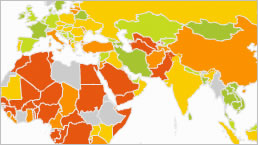In 2017, G20 countries are updating National Remittance Plans to encompass key G20 commitments since the finalization of the plans under Turkey’s 2015 G20 Presidency. This will include alignment with the 2030 Agenda and Addis Ababa Action Agenda, consideration of the impact of ‘de-risking’ activities on remittance flows and costs, and application of the 2016 G20 High-Level Principles for Digital Financial Inclusion. The updated National Remittance Plans will be finalized by the end of the German G20 Presidency. Non-G20 GPFI countries being a large source of remittance outflows worldwide will be encouraged to share information on their national remittance measures to enable cross-border remittance flows.
Download File(s):
Moving forward, G20 countries should continue to focus on cost reduction objectives, while recognizing the challenges posed by continued ‘de-risking’ actions as well as the opportunities offered by innovation in the financial technology space. The stall in the global average cost is an issue of concern and policies to facilitate cost reduction should continue to be implemented. On the one hand, ‘de-risking’ may negatively affect competition, financial inclusion, and even have the potential to reverse the achievements of the last decade. On the other hand, innovative technologies and business models could help gain further ground. These aspects and the interdependencies between them need to be given the necessary attention.
Learn more about the G20 National Remittance Plans.


